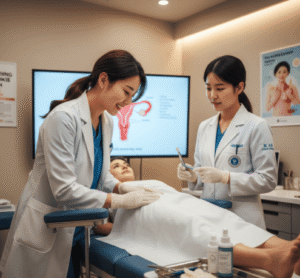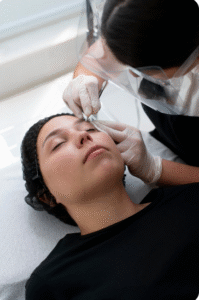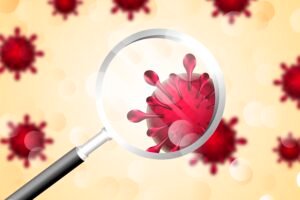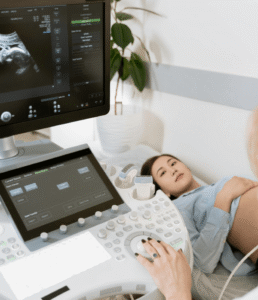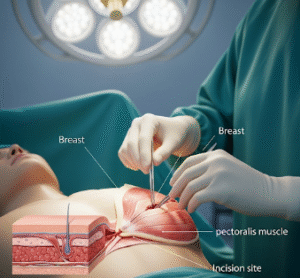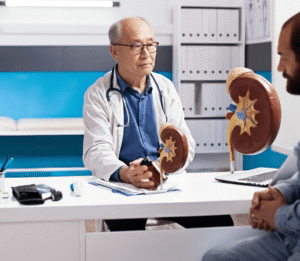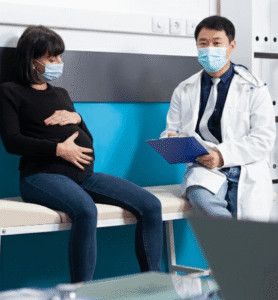What it is
Follow-up care for cancer survivors is a structured medical program that begins after active cancer treatment ends. It focuses on monitoring for recurrence, managing long-term or late side effects, and supporting survivors’ physical, emotional, and social well-being.
In Korea, follow-up care is delivered through specialized survivorship programs in cancer centers and hospitals, ensuring that survivors continue to receive comprehensive care well beyond their initial treatment.
➡️ Key elements of follow-up care:
- Regular medical check-ups and imaging for recurrence monitoring
- Management of physical and emotional side effects
- Counseling, rehabilitation, and lifestyle guidance
- Survivorship plans tailored to each patient’s cancer type and treatment history
Why it’s done
Finishing treatment does not mean the end of the cancer journey. Survivors remain at risk for recurrence, secondary cancers, and long-term health issues. Follow-up programs help survivors transition safely into long-term health management.
✔️ Medical reasons for follow-up include:
- Recurrence detection through early tests and imaging
- Monitoring long-term side effects of chemotherapy, radiation, or surgery
- Preventing secondary cancers with regular screening
- Managing fertility, menopause, or hormone-related issues in gynecologic cancer survivors
✔️ Benefits of structured follow-up care:
- Provides reassurance and early detection of problems
- Improves quality of life with physical and psychological support
- Guides survivors toward healthy lifestyle habits
- Encourages reintegration into normal life with confidence
Alternatives
While formal follow-up programs are highly recommended, survivors may sometimes consider other options.
🔹 Primary care follow-up:
- Care handled by general practitioners instead of oncologists
- Effective for stable survivors but may lack cancer-specific expertise
🔹 Self-monitoring only:
- Patients watch for symptoms and seek help when needed
- Risky as many recurrences are asymptomatic in early stages
🔹 International or telemedicine programs:
- Survivors living abroad may continue follow-up through virtual consultations with Korean specialists
➡️ Note: Dedicated survivorship programs remain the gold standard in Korea.
Preparation
Survivors benefit from preparing for follow-up care both medically and emotionally.
➡️ Medical preparation:
- Collecting records of diagnosis, staging, treatment details, and response
- Completing baseline imaging and blood tests before transition into survivorship care
- Understanding personal risk factors for recurrence or side effects
➡️ Personal preparation:
- Preparing a list of symptoms or concerns to discuss with doctors
- Keeping track of menstrual changes, fertility issues, or hormone symptoms (for women with gynecologic cancers)
- Planning for time off work or family support if ongoing side effects are present
➡️ Mental preparation:
- Accepting that follow-up care is a lifelong commitment
- Preparing emotionally for anxiety linked to surveillance testing
- Accessing counseling or peer support for motivation and reassurance
How it’s done
Follow-up care in Korea is systematic, patient-centered, and tailored to each survivor.
✔️ Step 1 – Survivorship care plan
- Oncologists create a written plan summarizing the cancer type, treatment received, potential late effects, and recommended monitoring schedule
- Shared with both survivor and healthcare team
✔️ Step 2 – Regular follow-up visits
- Frequency: every 3–6 months for the first 2–3 years, then annually after 5 years
- Includes physical exam, blood work, and imaging (MRI, CT, PET as needed)
- Screening for secondary cancers like breast, colon, or cervical cancer
✔️ Step 3 – Managing late side effects
- Pain, fatigue, neuropathy, lymphedema, or bowel/bladder issues addressed with rehabilitation and therapy
- Hormone replacement therapy considered for women after gynecologic cancer treatments
✔️ Step 4 – Psychosocial support
- Access to counseling, mental health therapy, and support groups
- Guidance on intimacy, fertility, and family planning after cancer
✔️ Step 5 – Lifestyle and wellness integration
- Nutrition counseling for cancer-preventive diets
- Exercise programs tailored to survivors’ physical condition
- Stress reduction through yoga, meditation, or traditional Korean wellness programs
✔️ Duration:
- Follow-up is lifelong but intensity decreases over time
- Most survivors remain in structured programs for at least 5–10 years
Recovery
Recovery as a cancer survivor is not only physical but also emotional and social.
➡️ Immediate recovery:
- Relief after treatment completion, but lingering fatigue or pain common
- Anxiety about recurrence especially strong in first year
➡️ Physical recovery:
- Gradual improvement in strength and stamina
- Ongoing management of side effects like infertility, lymphedema, or bone health issues
- Rehabilitation programs widely available in Korean hospitals
➡️ Emotional recovery:
- Survivors often experience “survivor’s guilt” or post-treatment depression
- Peer support groups and counseling help regain emotional balance
- Confidence and optimism improve with ongoing reassurance from follow-up care
➡️ Key recommendations:
- Keep a survivorship diary for symptoms and follow-up schedule
- Maintain a balanced diet rich in antioxidants and fiber
- Engage in regular, moderate exercise
- Stay proactive about mental health with counseling or support groups
Treatment option in Korea
Korea is highly advanced in comprehensive survivorship programs.
✔️ Hospital facilities:
- National Cancer Centers and top university hospitals with dedicated survivorship clinics
- Advanced imaging and diagnostic services for recurrence monitoring
- Rehabilitation and wellness centers integrated into cancer programs
✔️ Medical expertise:
- Multidisciplinary teams including oncologists, psychologists, nutritionists, physiotherapists, and social workers
- Personalized survivorship care plans based on international guidelines
- Access to clinical research on long-term cancer survivorship
✔️ Post-treatment support:
- Structured long-term monitoring schedules
- Lifestyle and wellness coaching
- Fertility and sexual health counseling for survivors of gynecologic cancers
✔️ Cultural aspect:
- Korean healthcare emphasizes family-centered recovery and holistic well-being
- Survivors often benefit from Sanhujoriwon-inspired recovery centers, offering rest, nutrition, and guided therapies adapted for cancer care
➡️ Highlight: Follow-up for cancer survivors in Korea ensures lifelong monitoring, holistic support, and personalized recovery plans, allowing survivors to rebuild their lives with health, dignity, and confidence.


